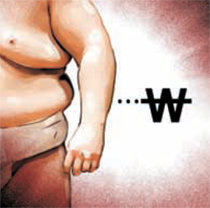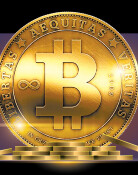Obesity tax
Obesity tax
Posted August. 08, 2018 07:14,
Updated August. 08, 2018 07:14

Like Tobin tax, named after the economist Tobin, there is Pigovian tax, named after the economist Pigou. Pigovian tax is tax imposed on what is called externality in economics. Environmental pollution is a typical externality. Emissions from factories pollute the environment and harm the health of human beings, but compensation is not included in the manufacturing cost. For this, the government receives compensation by imposing pollution tax. It is called “externality” because damages that ought to be compensated is not calculated within the market.
Cigarette tax and obesity tax also belong to Pigovian tax. "Externality" occurs when the national health fund spends more moeny for the sick people whose illness is related to smoking, drinking and eating fatty food. If someone has to pay for compensation, it should be the companies that produce cigarettes, food and drinks. A fat tax, compared to cigarette tax, is a Pigovian tax that has just started to be imposed. Ever since Denmark adopted obesity tax for the first time in the world in October 2011, more countries including the United States and the European Union are imposing taxation on food products that cause obesity, such as soft drinks and fast food.
The Ministry of Health and Welfare finalized “Comprehensive Measures for National Obesity Management” on July 26. One of such measures is strengthening monitoring “eating shows,” which encourage binge eating. Innovation Emergency Measures Commission Chairman Kim Byung-joon of the Liberty Korea Party, who has been focusing on “nationalism” since his inauguration, criticized such measure on obesity as a typical case of nationalism, saying, “The government now wants to regulate even eating shows.” The government backed off by saying that it is not regulating eating shows, but is still reportedly reviewing obesity tax as another measure.
Pigovian tax ultimately puts a burden on consumers. Companies raise the price of cigarettes, food and drink prices given that cigarette or obesity taxes are imposed. Of course, increased price is expected to lower the demand for cigarettes, sugar or fat. As can be noted in cigarettes, however, price increase does not affect the demand in proportion to the price increase. Therefore, many people criticize that Pigovian tax is becoming a method for the government to raise tax easily while the concerned companies do not have to deal with such burden.
pisong@donga.com







